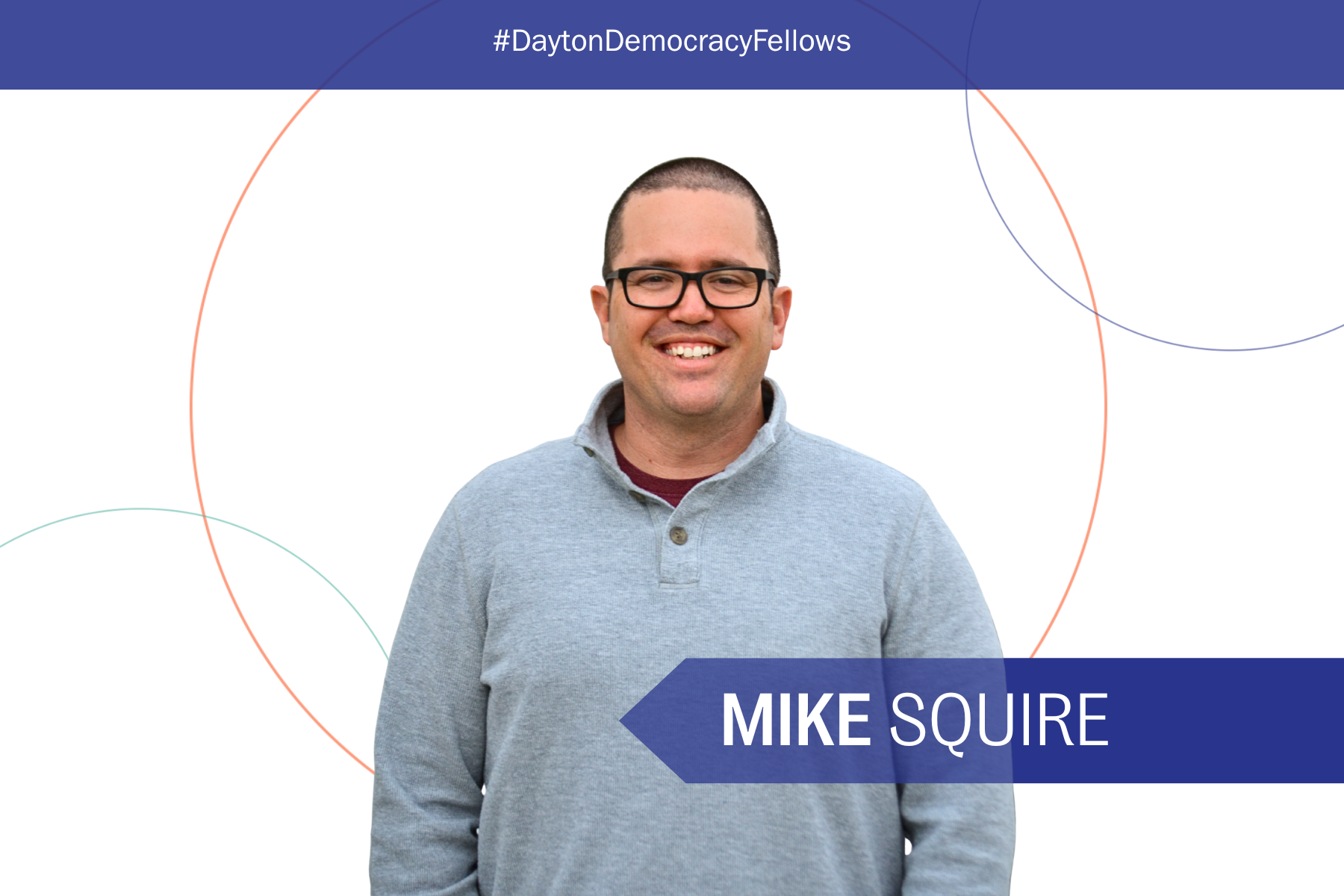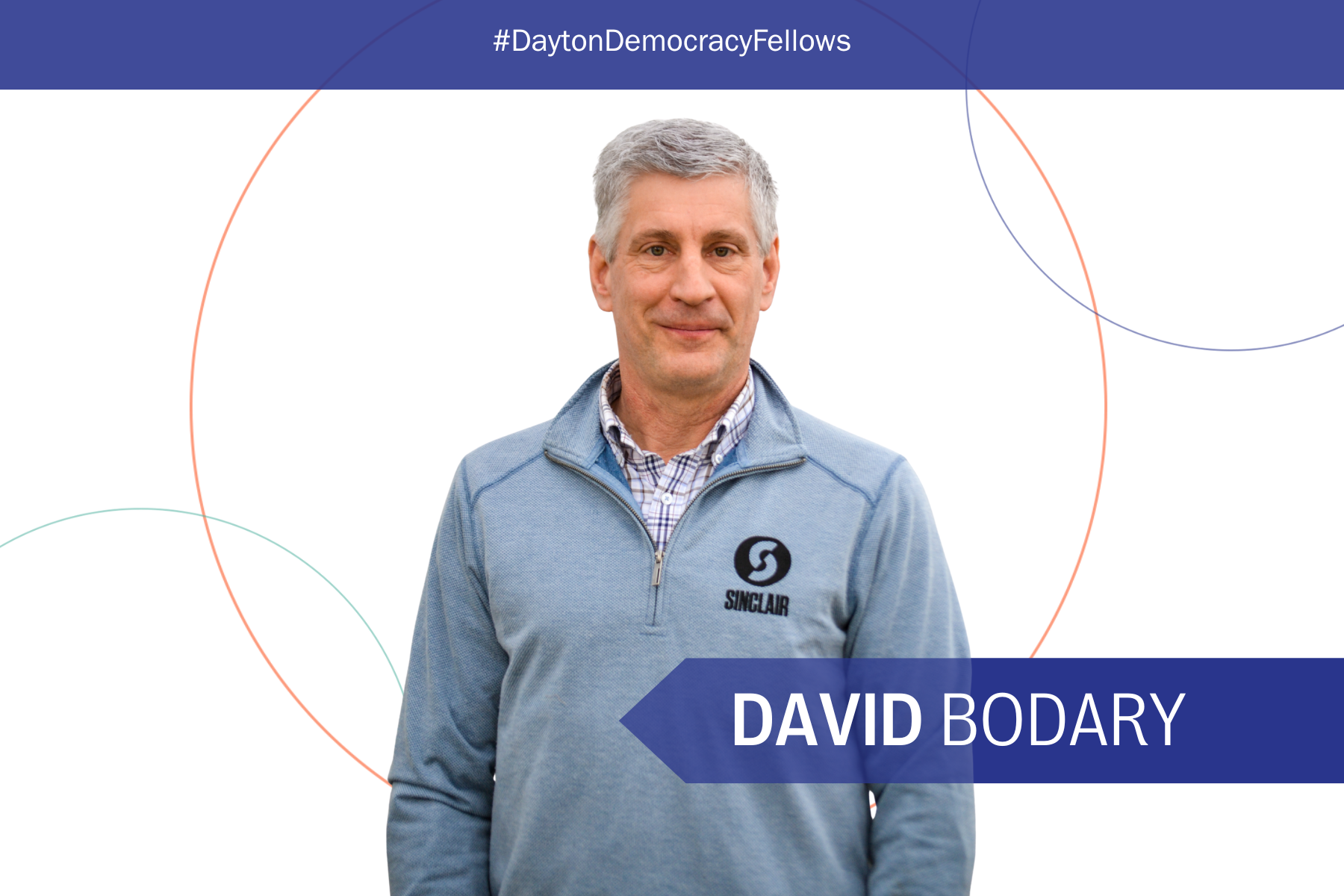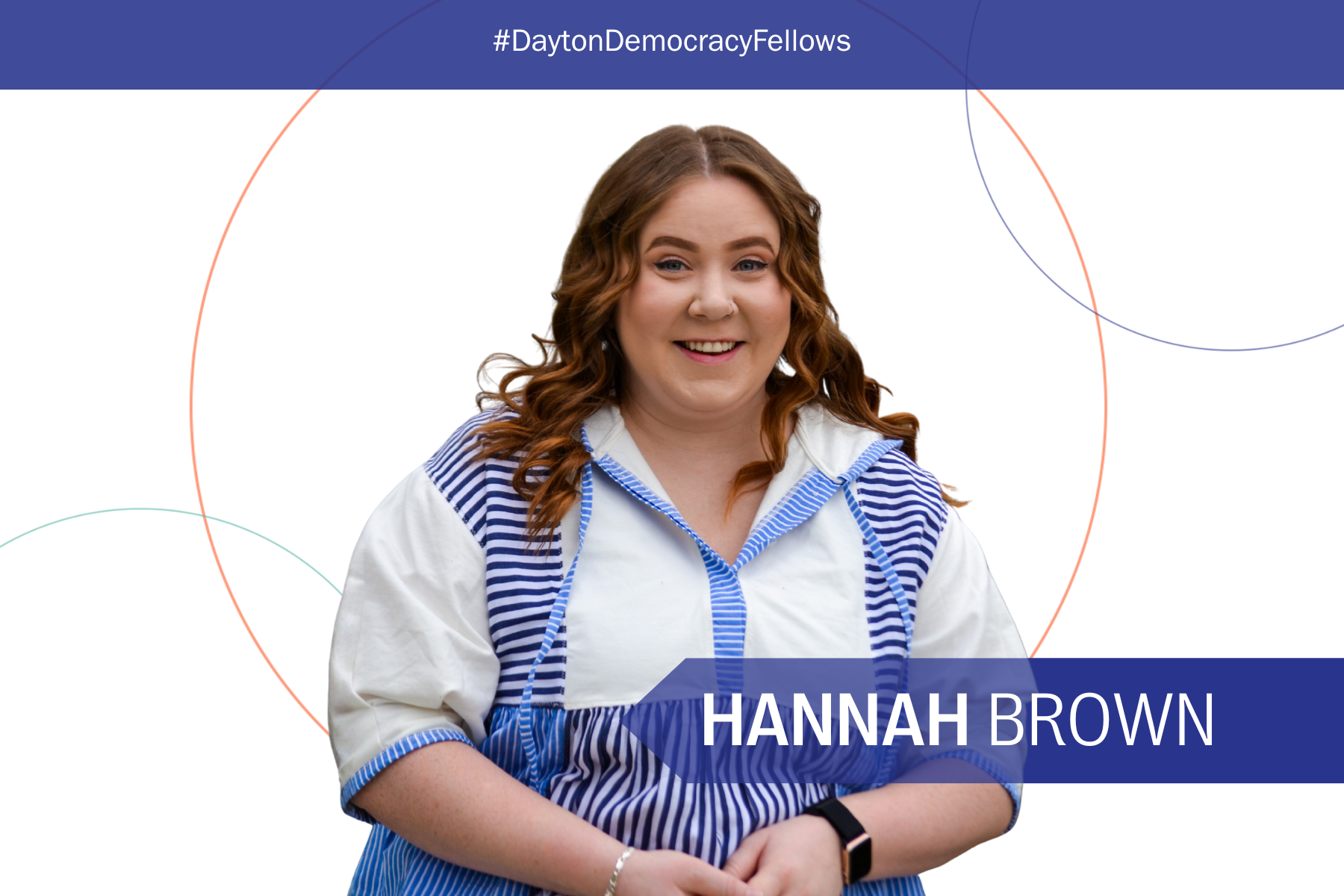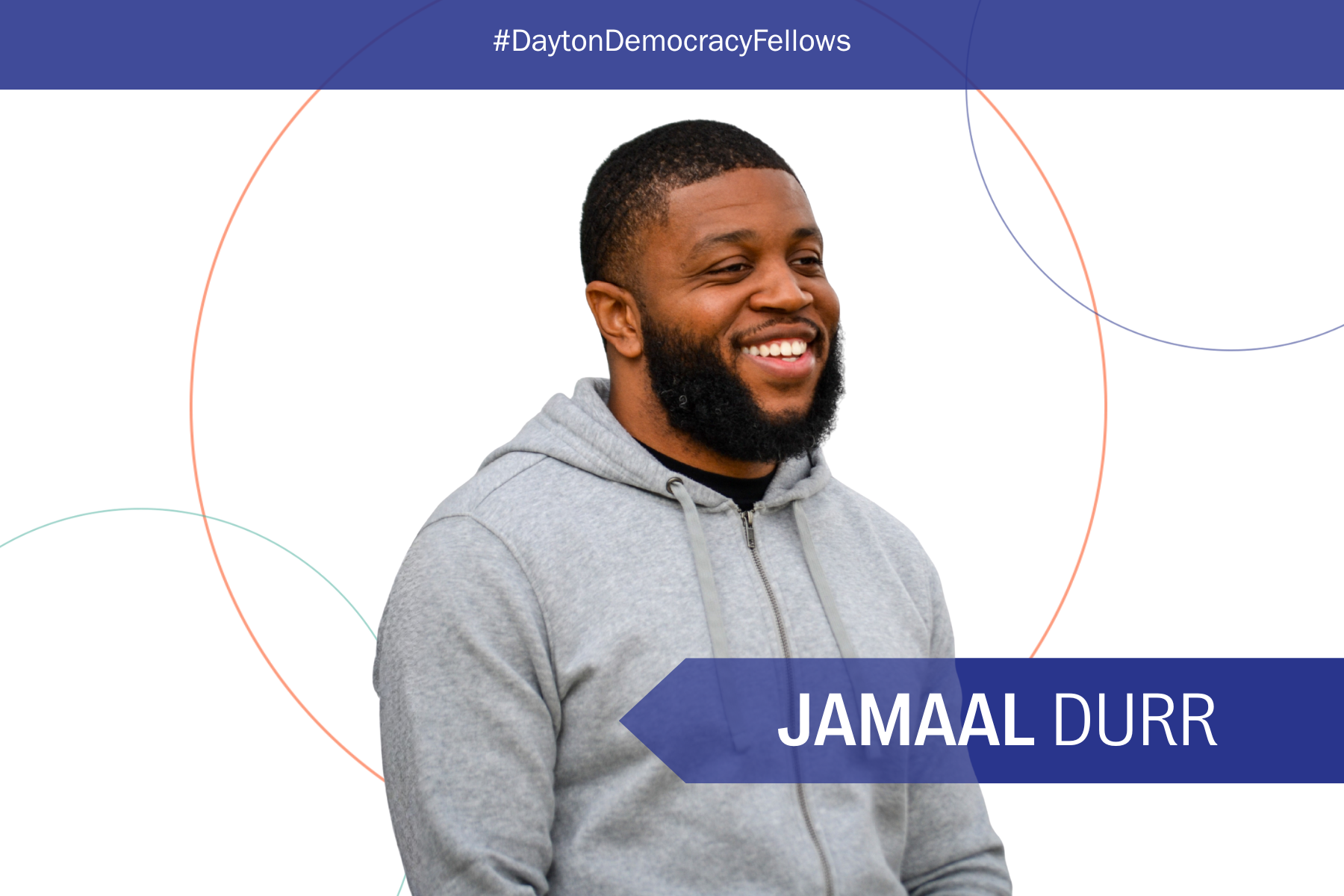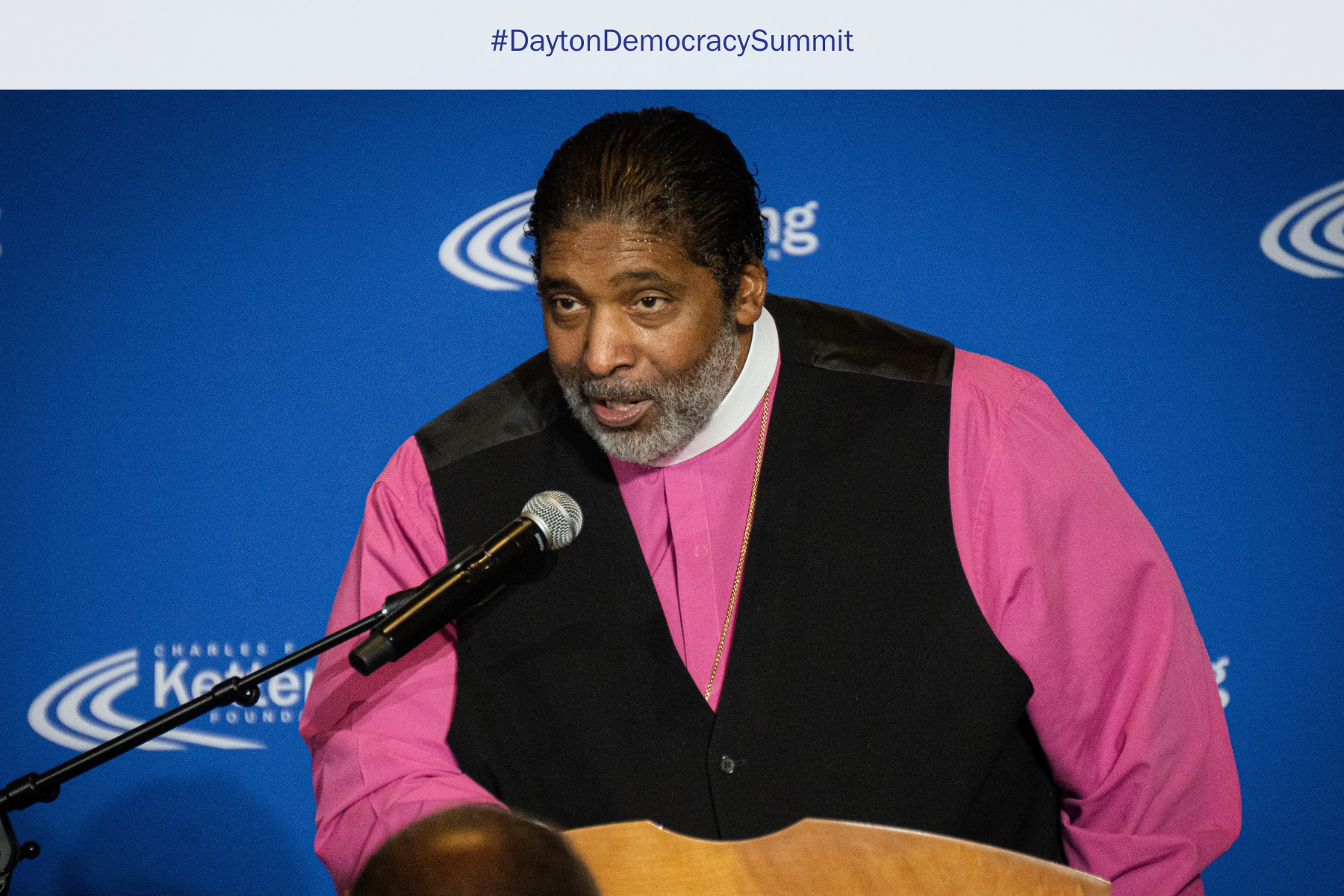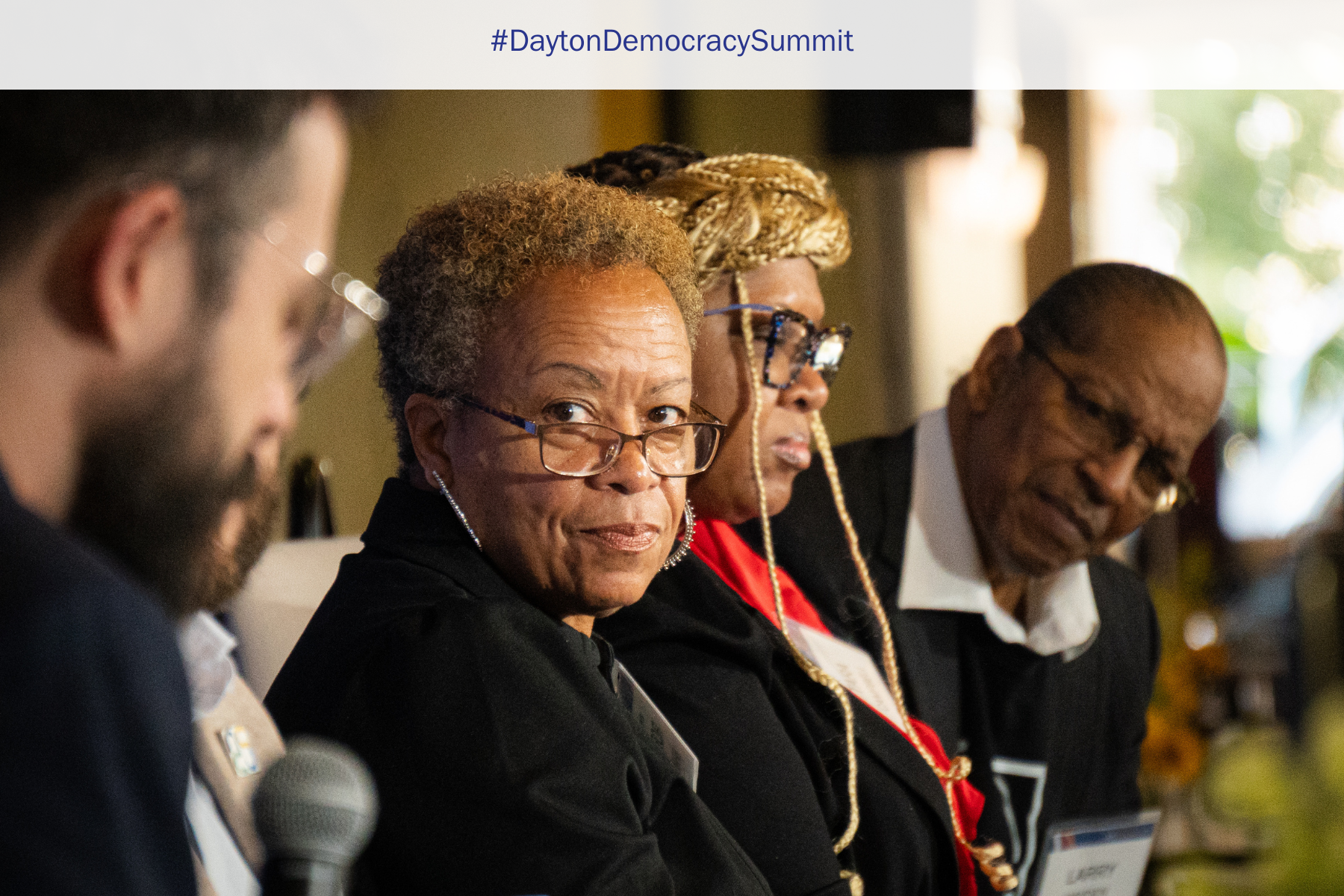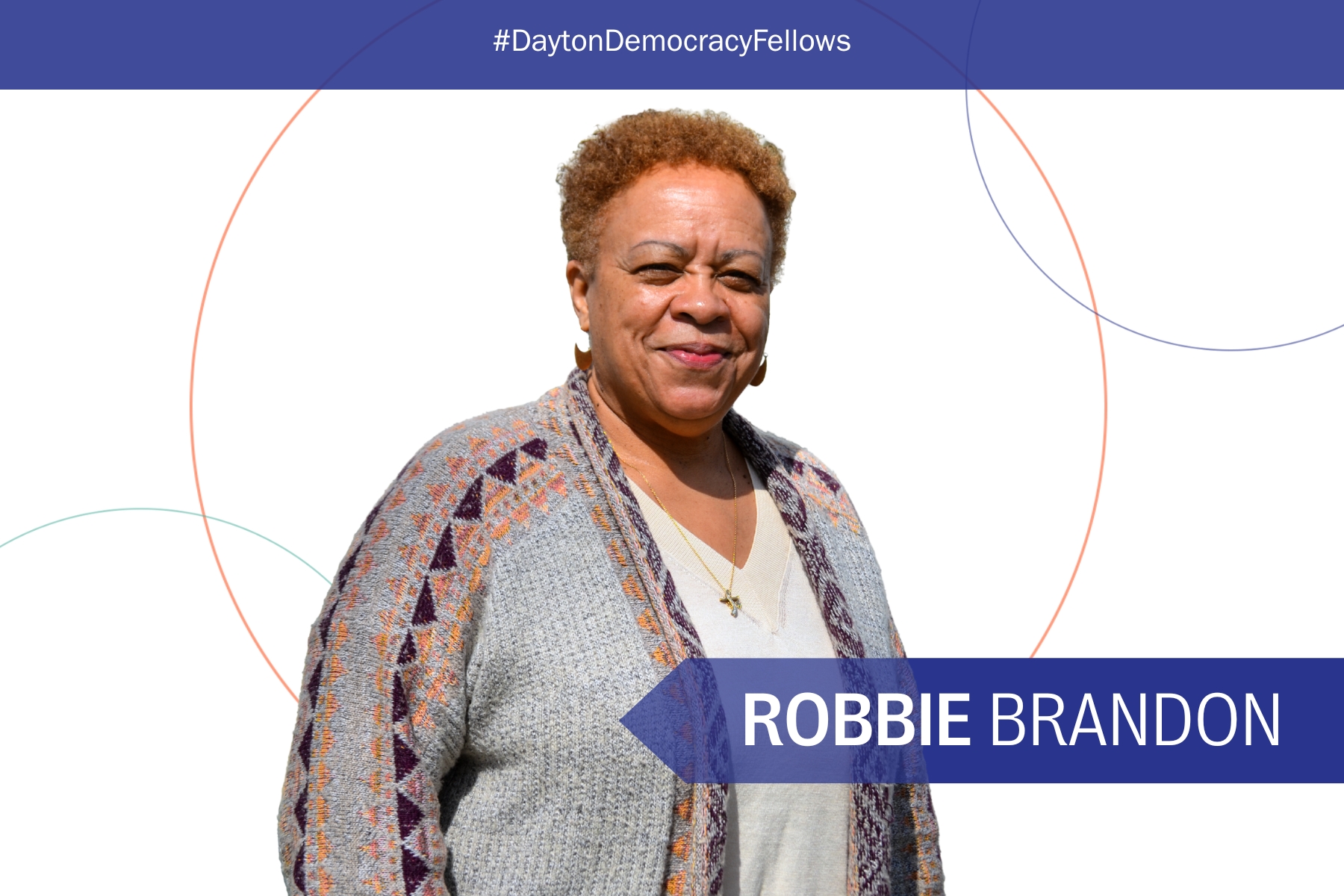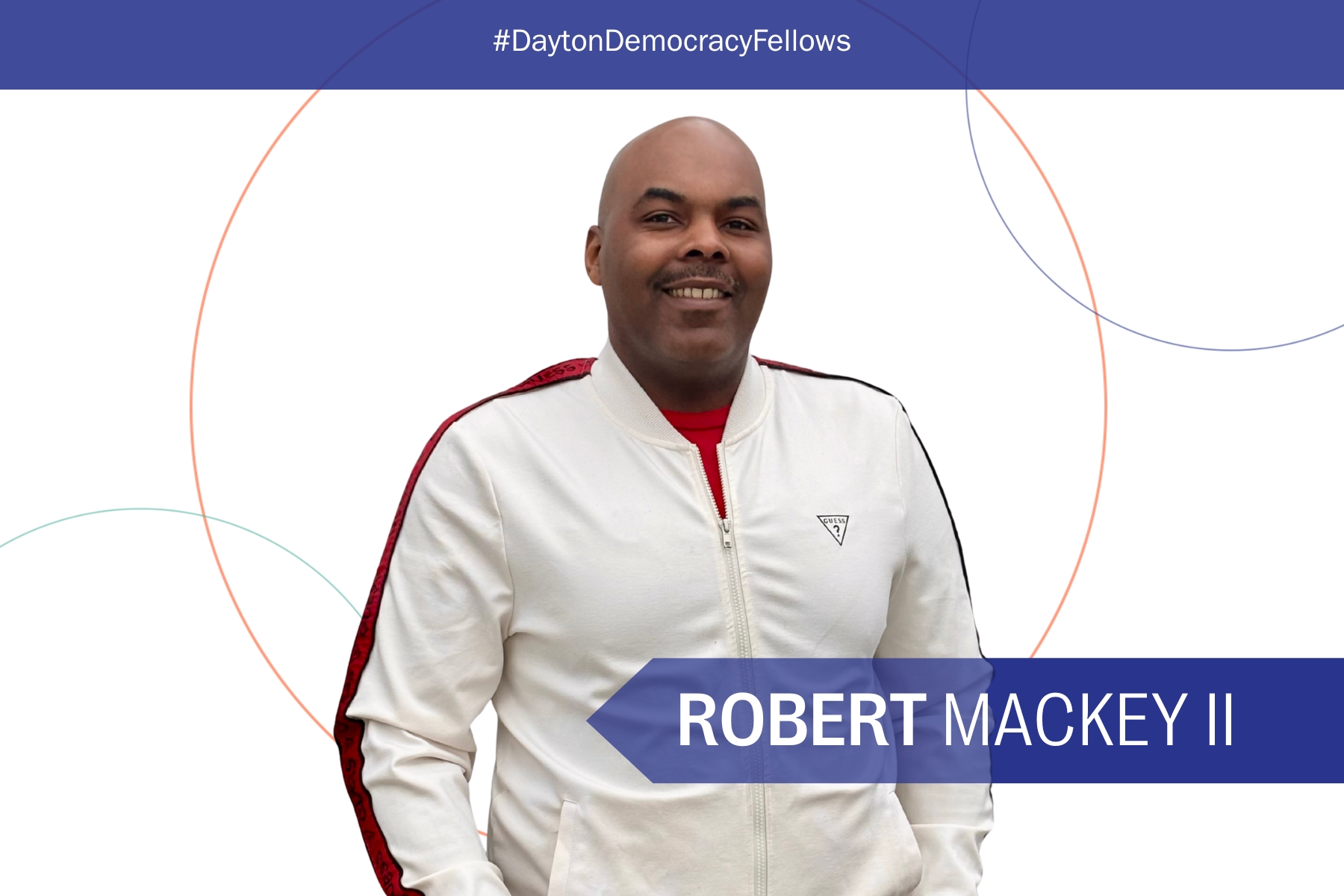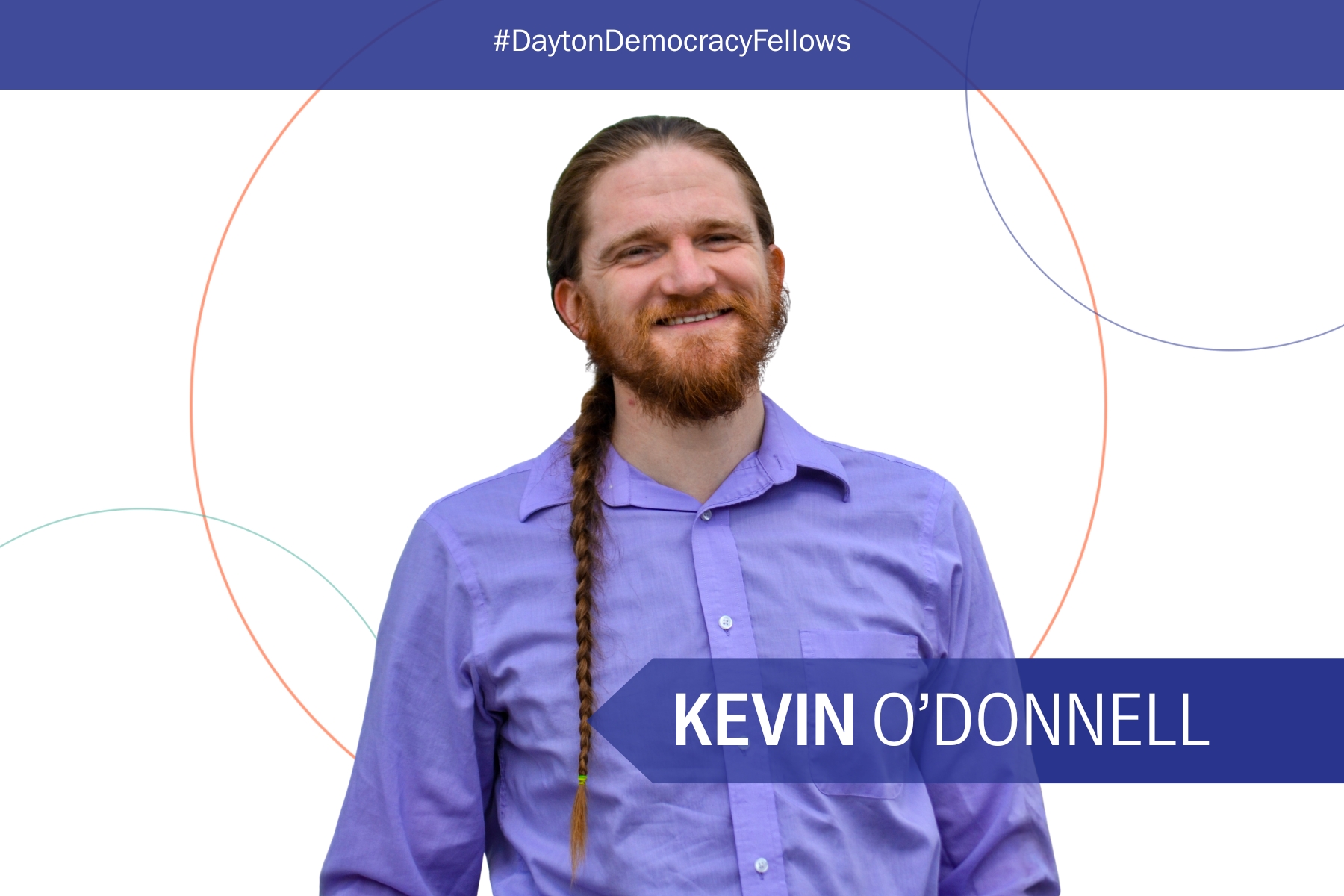Destiny Brown: A Leader in Tenants’ Rights
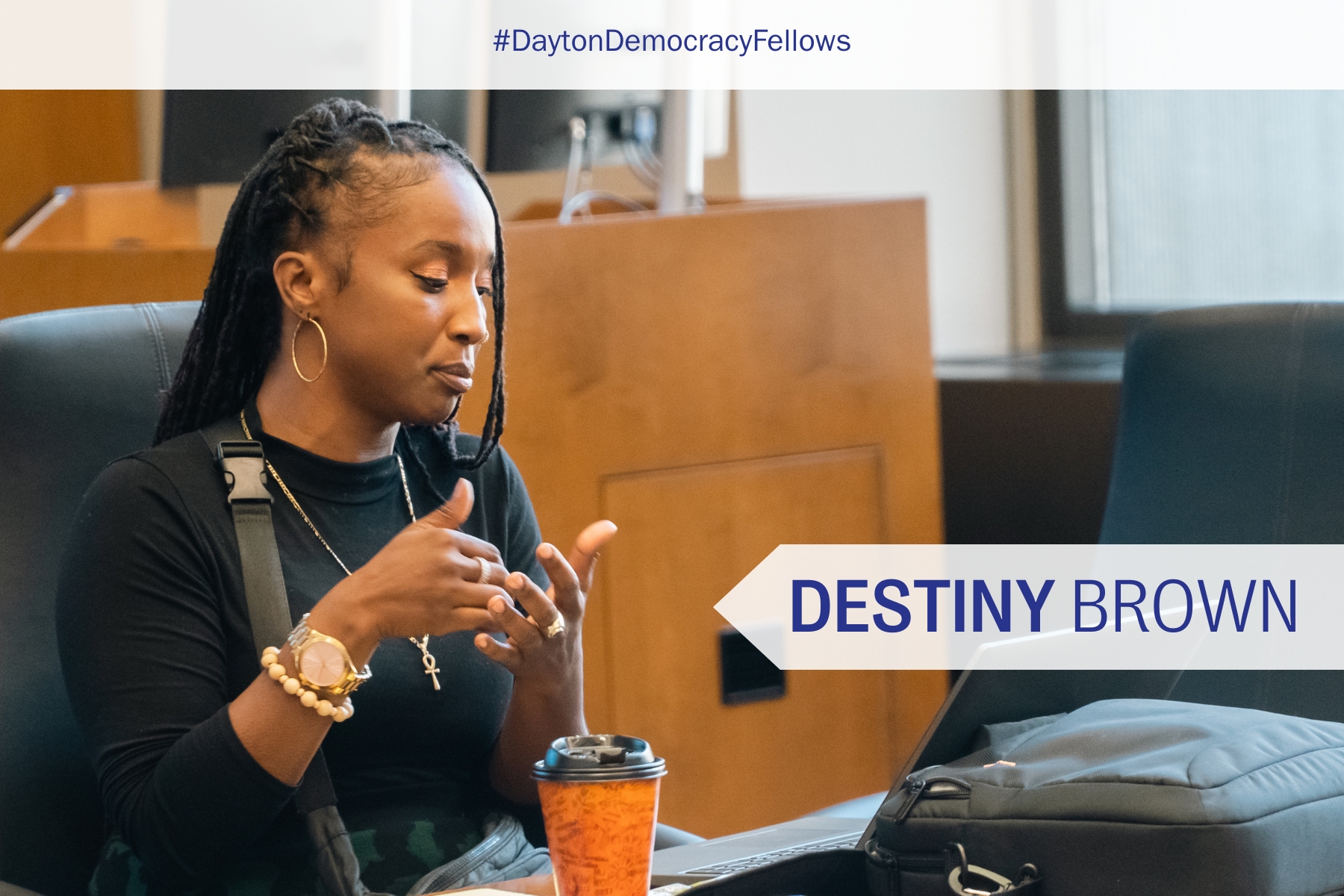
The Kettering Foundation’s Dayton Democracy Fellowship is a one-year program that supports innovative leaders, changemakers, and dreamers who are building movements for inclusive democracy in their communities and in our wider world. This series of articles about the Dayton Democracy Fellows highlights their robust work and the powerful narratives that drive the advancement and defense of democracy.
As a community organizer with Advocates for Basic Legal Equality (ABLE), and founder of the Dayton Tenant Union, Kettering Foundation Dayton Democracy Fellow Destiny Brown's lived experience allows her to bring compassion and empathy to her advocacy. Brown has homeschooled her children, run a home daycare business, and is a birth doula. In 2023, Brown founded the Dayton Tenant Union, a grassroots organization of tenant and community members advocating for tenant rights and improved housing conditions.
Early on, the group began to hold meetings every month and lobbied the city for a sustainable line item to address housing. "The group organized a media campaign, organized folks to go to city commission meetings on a regular basis, and really just pushed the city," said Brown. In a big win for the Dayton Tenant Union, the city allocated about $1 million in its annual budget for housing.
Brown saw the campaign as a kind of "Democracy 101" experience for people, many of whom never attended a commission meeting, let alone spoke at one. "We talk about democracy and ask, What does it look like? These are everyday people who otherwise never would feel involved or feel connected to our tax levies or the things that ultimately will impact them. But we try to empower them," she said. "This is really what that work is about: helping people understand that you're capable of being involved in these conversations, that it is a right for you to be aware of what's happening. And we tell them, once you're educated, it is your duty to engage. We have to empower people, to position them for that."
Sometimes the very problems in housing that members of the Dayton Tenant Union organize to address pose an obstacle to a member's involvement. She used one member's situation as an example.
"She is an eloquent and amazing woman, but she has a large family and was experiencing mold in her home extensively," said Brown. "It can induce asthma, and it caused all these health problems that her daughter has newly been struggling with since living in their home. Our city has no regulations around mold. There is nothing that says it has to be remedied. There's no standard on the quality of housing that leads to health conditions for people, but they are expected to be able to maintain their rent payment when they can't go to work or their kid is sick."
These issues will ultimately affect people's ability to vote, said Brown.
"On the day that I would go vote . . . Say I've got four kids at home, and I'm not exactly sure how dinner is going to work this evening. I may have a car, I may not. I have to determine what matters. The lowest person on the totem pole is going to vote," she said. "Underlying issues have to be addressed. You can't do anything if your mind's not well, if your home is not safe."
Brown sees racism as another overriding issue that affects all others.
"Racism just never lets up," she said. "And if we want to improve the quality of communities, we have to address the root causes of the things that are causing them not to be well," she said. "The driver then becomes, do I want my children to be subject to this? And what can I do now, in alleviating or minimizing what they'll feel as they age?"
Helping people advocate for their own needs not only makes the community better but also helps people find their voices. Brown is an advocate who sees so much talent in those for whom she advocates; they are the homegrown experts of their communities. "All odds are against them, but they do magical things," she said. "They come together to make movements happen, push for system change."
But they can't do it alone. "No movement succeeded by the impacted people alone making change happen, unfortunately. Because if we alone could succeed, we probably could have done it by now," Brown said. "But when you're not heard or you're not seen, it is a challenge. It takes people in power or with privilege to highlight those voices."
No matter what problems she sees, she finds reason for optimism.
"What gives me hope is something my mom used to always say. She was truly an activist, but she talked about the need for both parties to be involved. She spoke to the reality that Black issues didn't become issues for a lot of people until they became White issues, where there were White voices talking about Black issues," said Brown. One thing that I appreciate is seeing some of these organizations and institutions who prioritize using their privilege to shift the balance of power to be a service catalyst for system changes. That's part of the honor in doing this work with the Kettering Foundation."
Maura Casey is a former editorial writer for the New York Times and has worked with the Kettering Foundation since 2010.
The Charles F. Kettering Foundation Dayton Democracy Fellowship is a one-year program designed to support innovative leaders, changemakers, and dreamers who are building movements for inclusive democracy in their communities and in our wider world.
